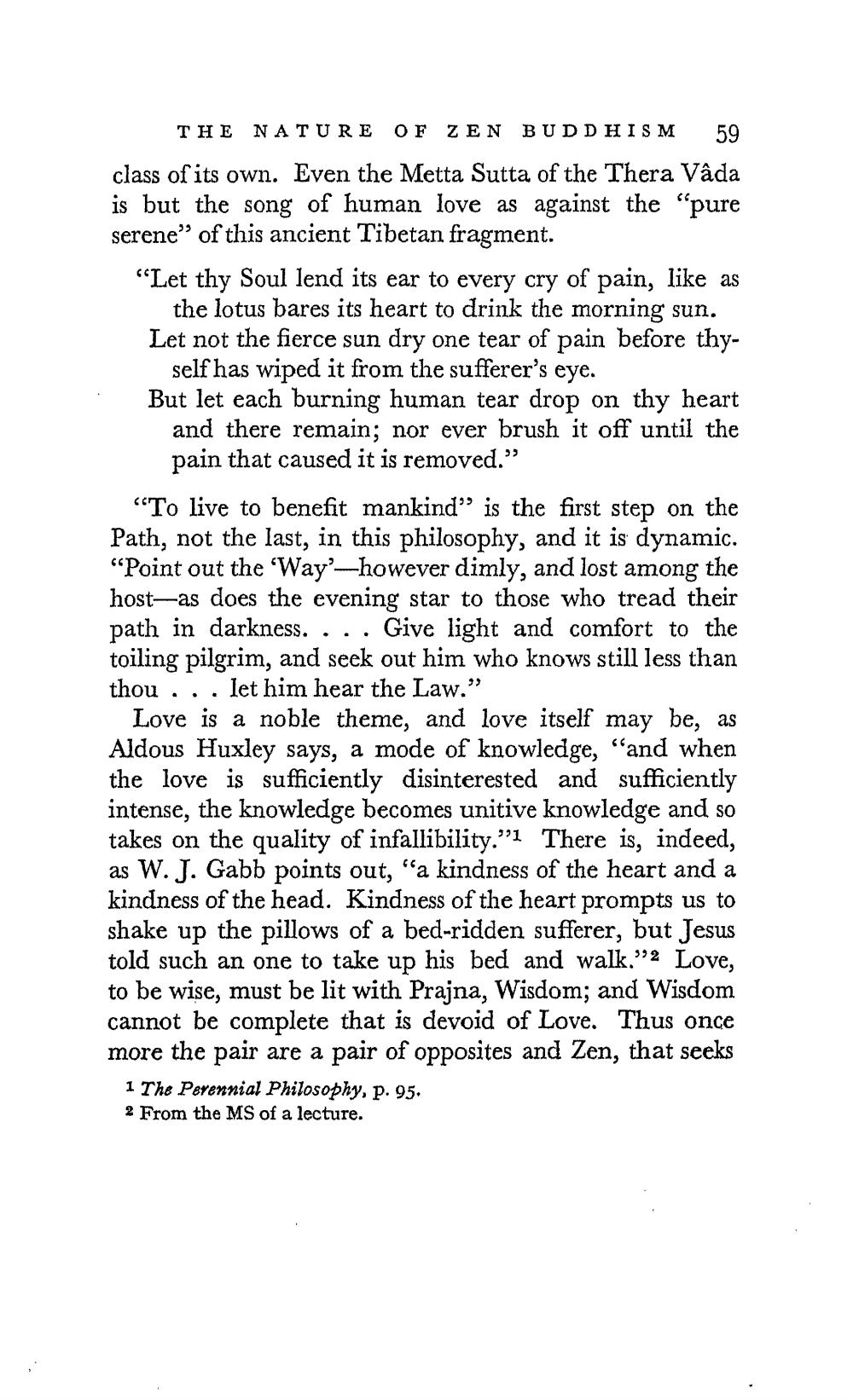________________
THE NATURE OF ZEN BUDDHISM 59 class of its own. Even the Metta Sutta of the Thera Vâda is but the song of human love as against the "pure serene” of this ancient Tibetan fragment. “Let thy Soul lend its ear to every cry of pain, like as
the lotus bares its heart to drink the morning sun. Let not the fierce sun dry one tear of pain before thy
self has wiped it from the sufferer's eye. But let each burning human tear drop on thy heart
and there remain; nor ever brush it off until the
pain that caused it is removed.” "To live to benefit mankind” is the first step on the Path, not the last, in this philosophy, and it is dynamic. "Point out the 'Way-however dimly, and lost among the host-as does the evening star to those who tread their path in darkness. . . . Give light and comfort to the toiling pilgrim, and seek out him who knows still less than thou . . . let him hear the Law.”
Love is a noble theme, and love itself may be, as Aldous Huxley says, a mode of knowledge, "and when the love is sufficiently disinterested and sufficiently intense, the knowledge becomes unitive knowledge and so takes on the quality of infallibility."1 There is, indeed, as W. J. Gabb points out, "a kindness of the heart and a kindness of the head. Kindness of the heart prompts us to shake up the pillows of a bed-ridden sufferer, but Jesus told such an one to take up his bed and walk."2 Love, to be wise, must be lit with Prajna, Wisdom; and Wisdom cannot be complete that is devoid of Love. Thus once more the pair are a pair of opposites and Zen, that seeks
1 The Perennial Philosophy, p. 95. 2 From the MS of a lecture.




